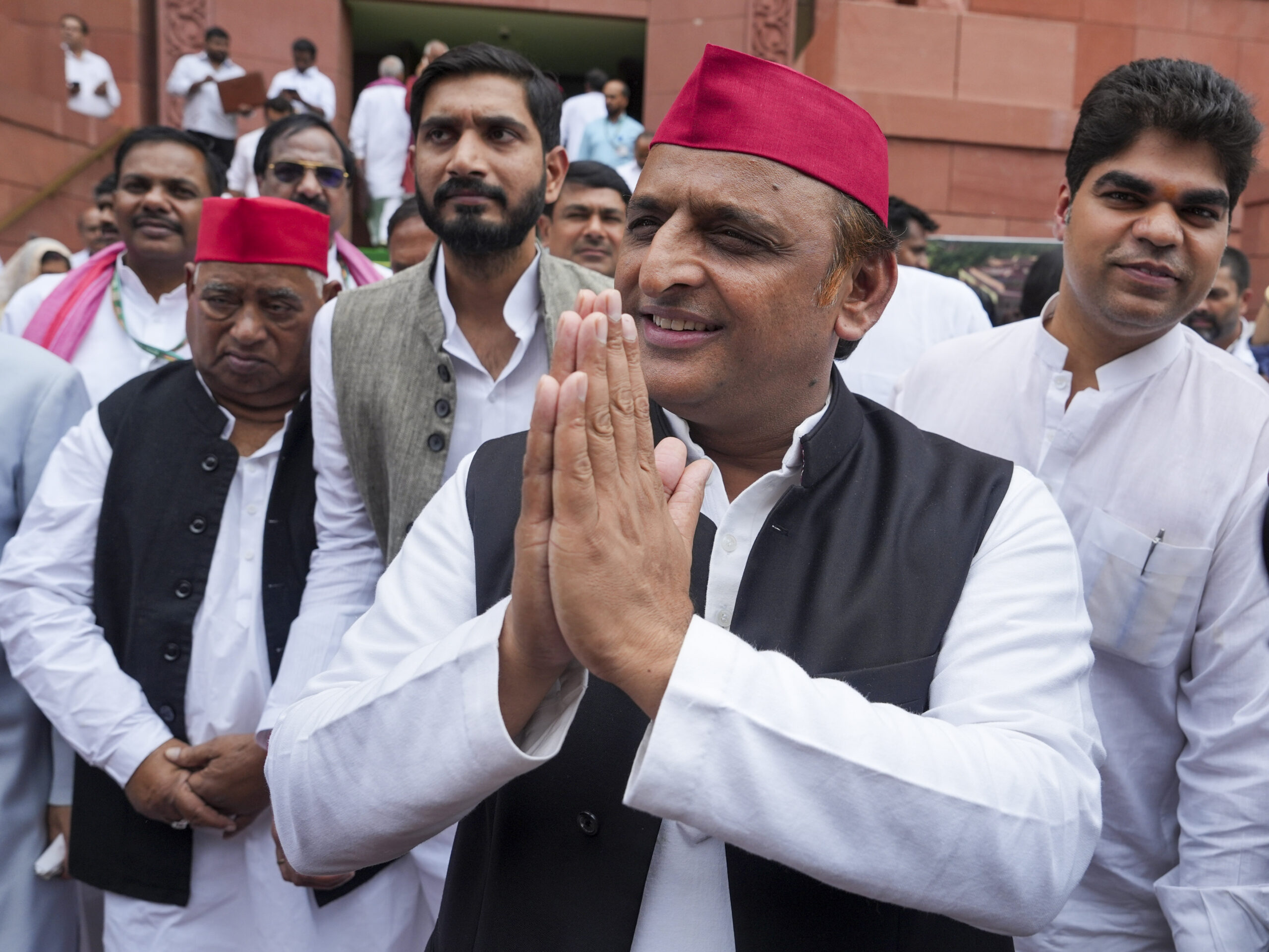
Akhilesh Yadav’s political journey reveals a tantalising tension between inherited legacy and earned leadership. Mulayam Singh Yadav laid the foundation of the Samajwadi movement in UP. It is Akhilesh who redefines it and makes it fully alive to the expectations of the 21st century.
His evolution from a product of a well-entrenched dynasty to an assertive and visionary leader suggests that authentic leadership isn’t about escaping a legacy—it’s all about transforming it. In the vast political landscape of India, legacy is often both a blessing and a burden. Once seen merely as the heir to a powerful dynasty, Akhilesh has steadily carved his own identity, navigating the complex terrain of caste, coalition, and change. His rise beyond the towering shadow of his father reflects a generational shift—not just in leadership, but in vision and political style.
Weight of a political dynasty
Mulayam Singh Yadav was a formidable figure in Indian politics—an astute wrestler-turned-politician who built the Samajwadi Party with the support of backward classes, minorities, and rural voters. His deep roots in socialist ideology and grassroots politics earned him the title of “Netaji” among loyalists. For years, he was not only the party’s chief architect but also its soul.
In contrast, Akhilesh Yadav entered politics with a degree in environmental engineering, a soft-spoken demeanour, and a modern outlook that initially seemed out of sync with the rugged politics of Uttar Pradesh. His early years were seen as an extension of his father’s legacy rather than a new beginning.
Generational shift begins
Akhilesh’s first significant moment came in 2012 when he led the SP to a surprising majority in the UP Assembly elections and became the youngest Chief Minister of the state at the age of 38. While critics attributed his success to the party’s strong organisational base, it was clear that his campaign style—youth-focused, development-oriented, and tech-savvy—had resonated with voters.
His tenure as CM marked a visible shift from the old guard. From promoting infrastructure projects like the Lucknow Metro and expressways, to pushing for laptops for students and urban development, Akhilesh sought to blend governance with aspiration. However, internal party conflicts—most notably the public power struggle with his uncle Shivpal Yadav—threatened to derail his momentum.
Break from the old order
The 2017 internal family feud marked a turning point. Akhilesh’s open defiance of his uncle and, at times, even his father, signalled his readiness to break from the traditional command structure of the SP. He was expelled and later reinstated, but the message was clear: Akhilesh was determined to take complete control, showing his resilience in the face of adversity.
Following the 2017 election, after a major electoral defeat at the hands of the BJP, Akhilesh began rebuilding the party in his image. He rebranded SP’s narrative, moving beyond the traditional MY (Muslim-Yadav) vote bank to attempt broader social alliances. The party’s tone shifted from being solely caste-centric to issue-based, highlighting unemployment, farmers’ distress, law and order, and economic inequality.
Leader in his own right
In recent years, Akhilesh Yadav has emerged not just as the face of the Samajwadi Party but as one of the principal challengers to the BJP’s dominance in Uttar Pradesh. His strategic alliances (with BSP in 2019 and the RLD and other regional players in 2022), ability to adapt to changing political climates, and connection with young voters have elevated his standing in national politics, instilling confidence in his leadership.
Moreover, his restrained and dignified demeanour, particularly in contrast to the aggression of UP’s current political climate, has helped him appeal to a more diverse voter base. While he still carries the weight of the Yadav name, his leadership is increasingly seen as independent, modern, and forward-looking, instilling optimism about the future of the Samajwadi Party.
Challenges ahead
Despite his progress, Akhilesh still faces significant challenges: the deeply entrenched BJP machinery in UP, the volatility of caste equations, and the need to strengthen SP’s presence in urban and upper-caste voter segments. Rebuilding the organisational base, handling coalition dynamics, and maintaining public trust remain key. After a respectable performance in 2022 and maintaining relevance in the 2024 Lok Sabha elections, the road ahead for SP involves:
- Strengthening grassroots presence, especially in eastern and central UP.
- Expanding the “PDA” formula (Pichhde, Dalit, Alpsankhyak – Backwards, Dalit, Minority) as a counter to the BJP’s caste arithmetic.
- Building a broader youth and issue-based campaign centred on jobs, inflation, and farmers’ concerns.
- Forming strategic pre-poll alliances with like-minded regional players such as RLD, SBSP, or Congress, depending on context.
In the end, Akhilesh Yadav has not just stepped out of his father’s shadow; he is slowly building a new legacy of his own.




